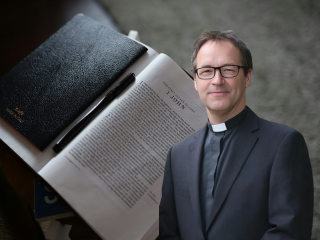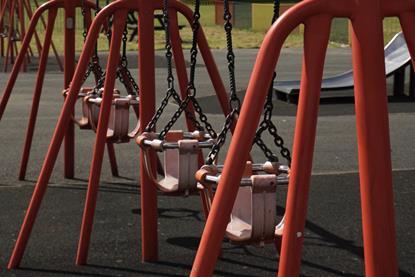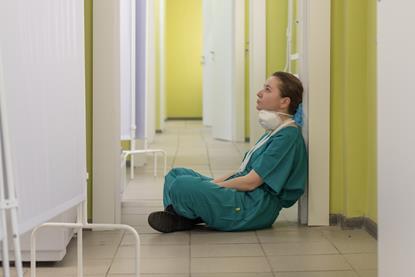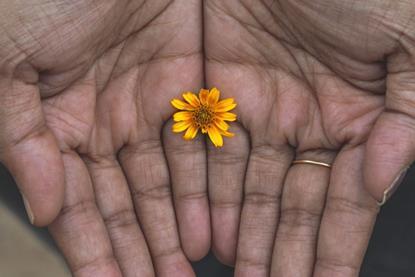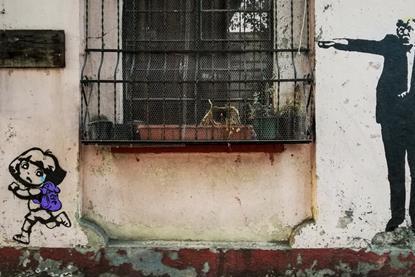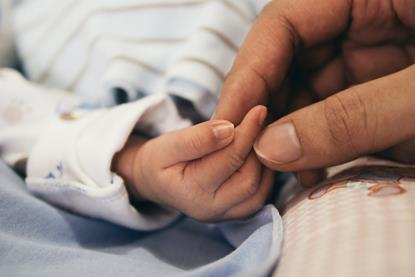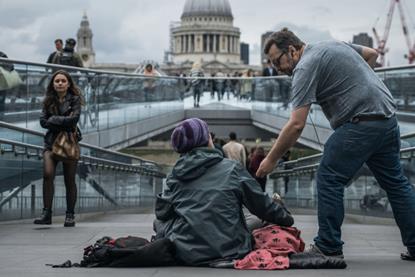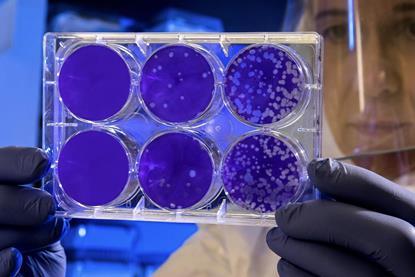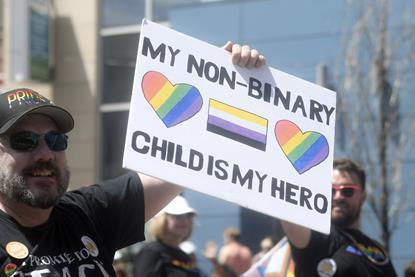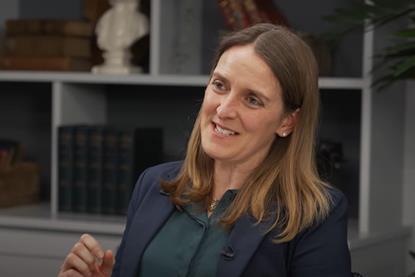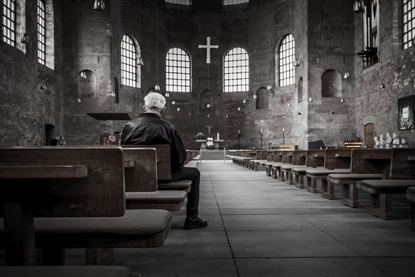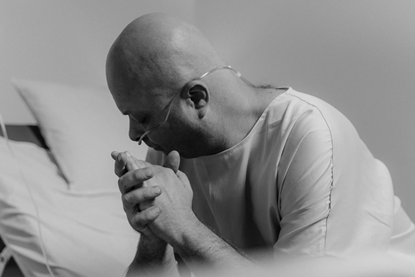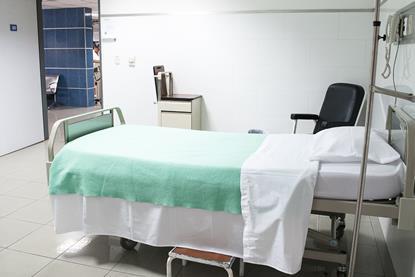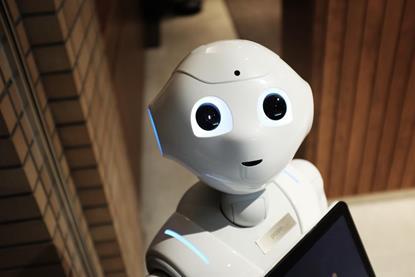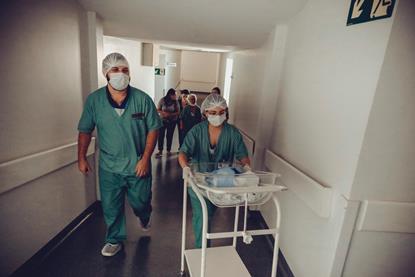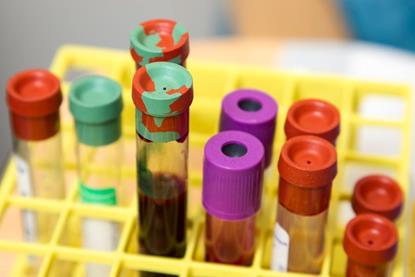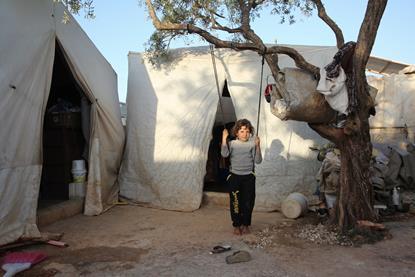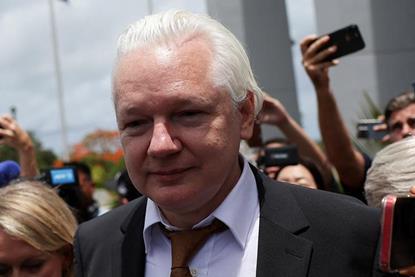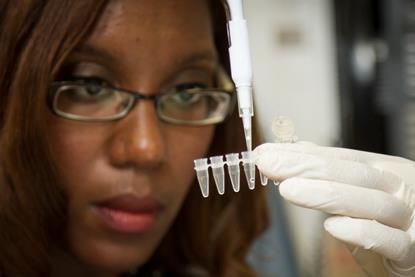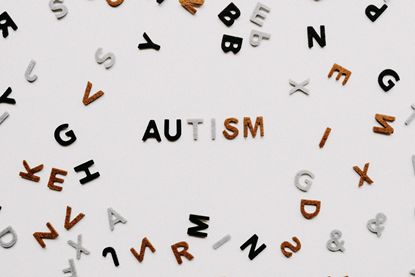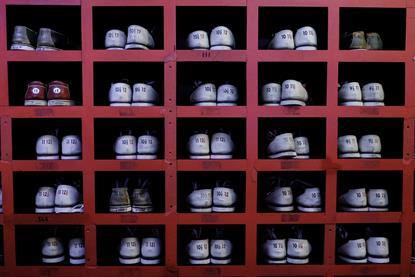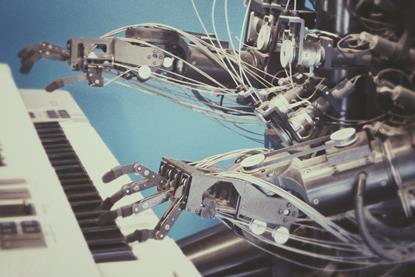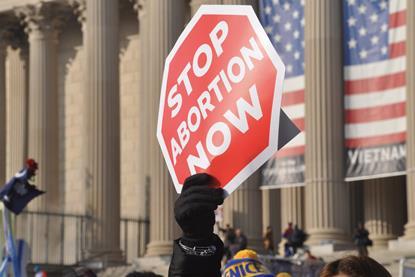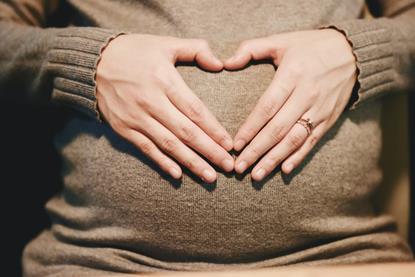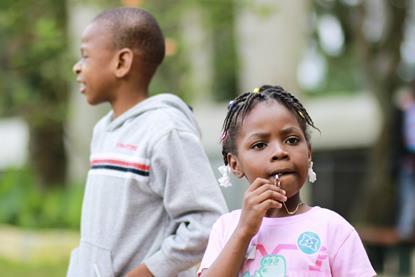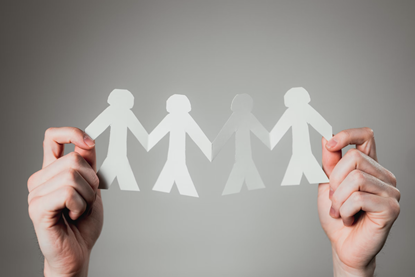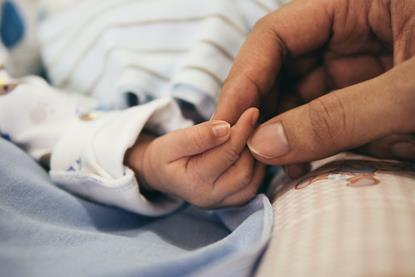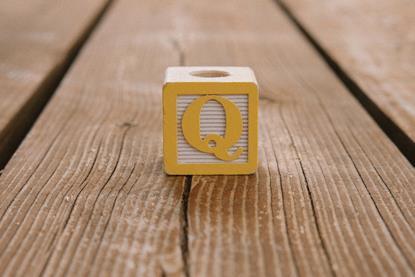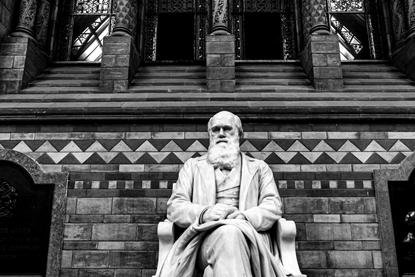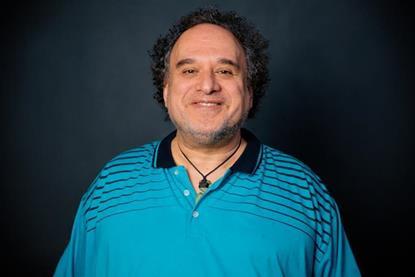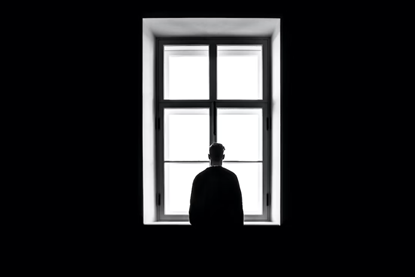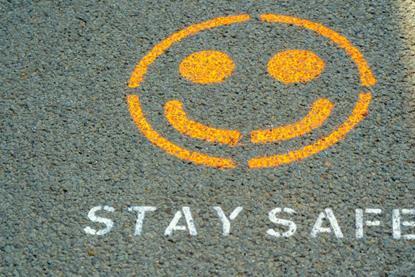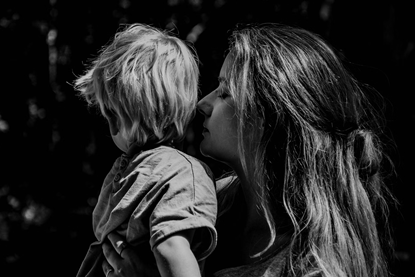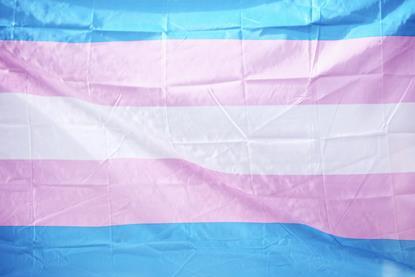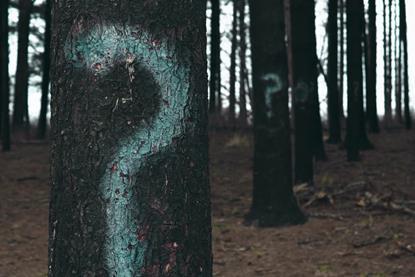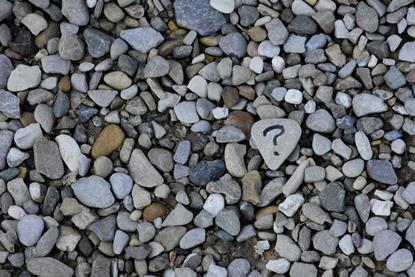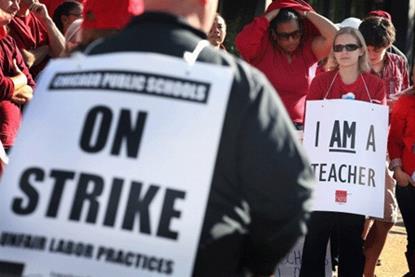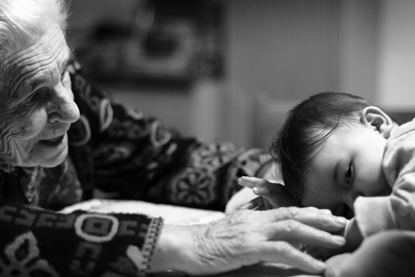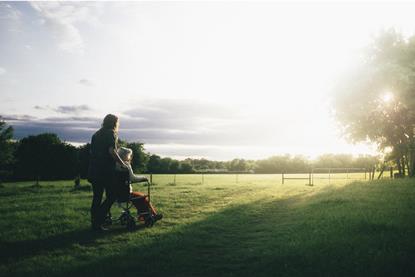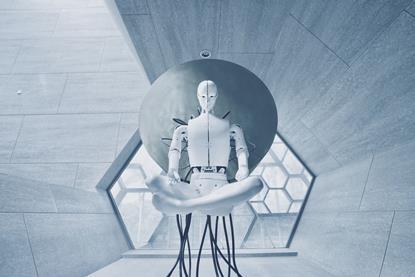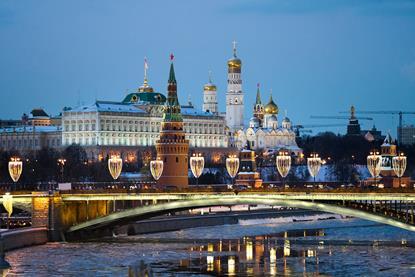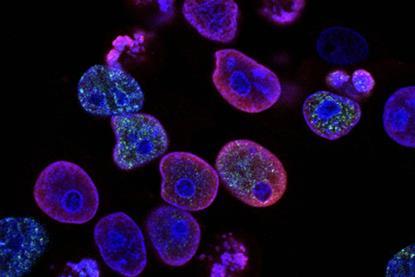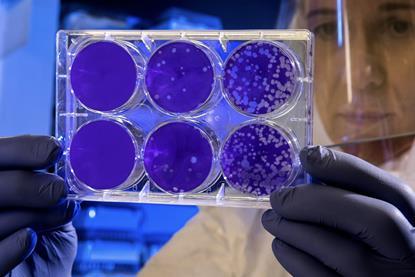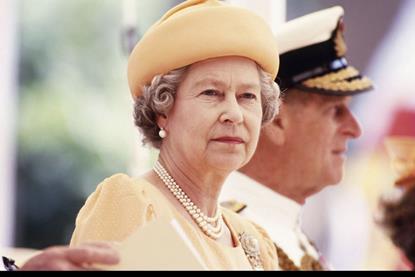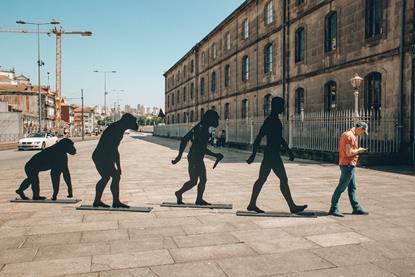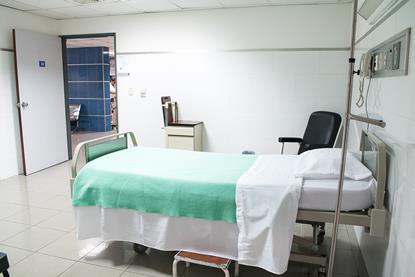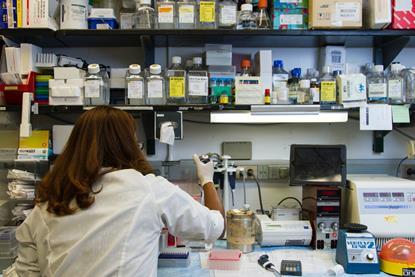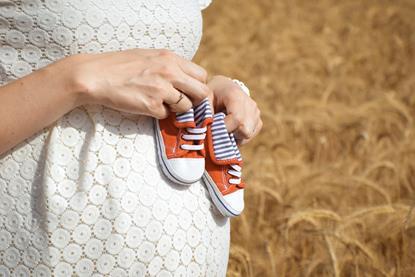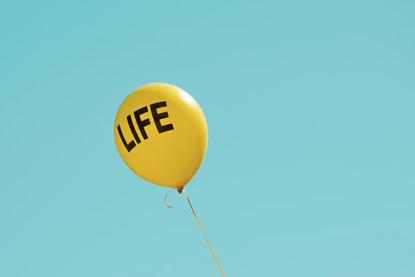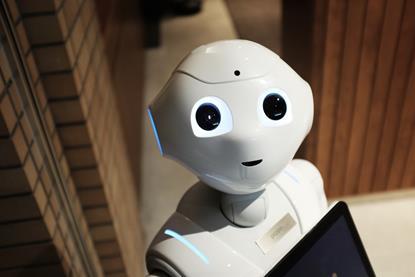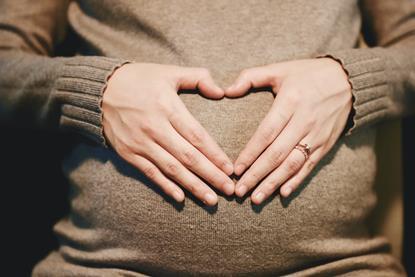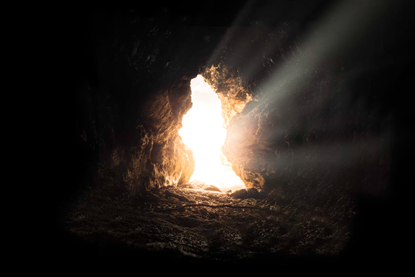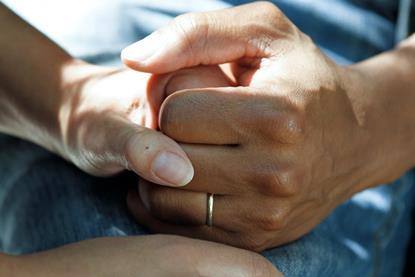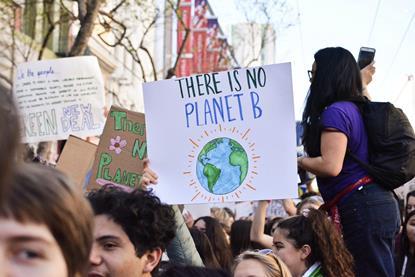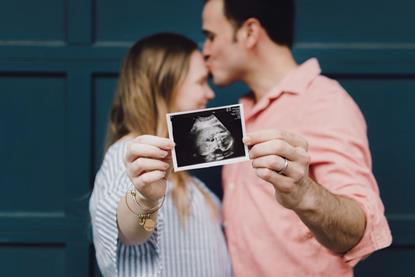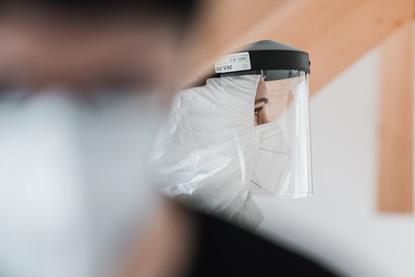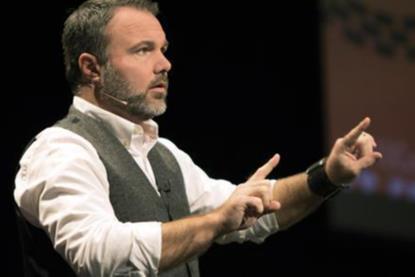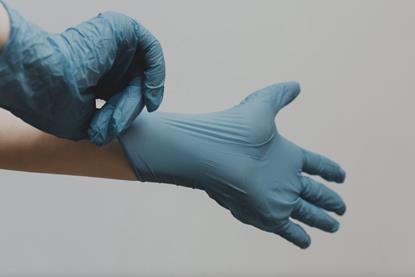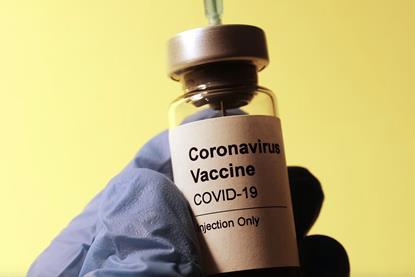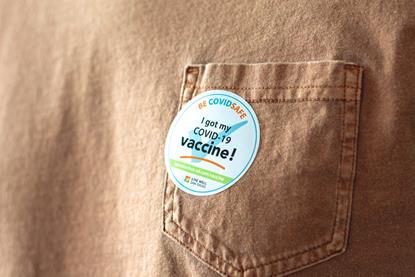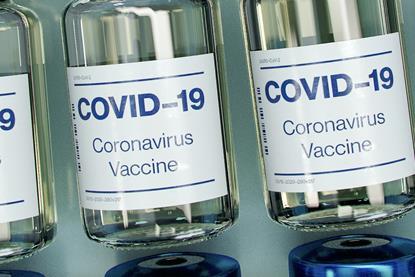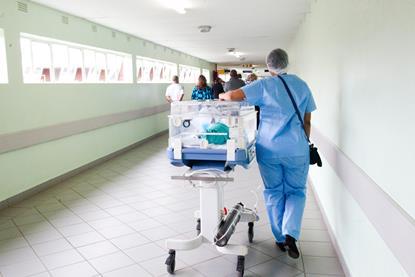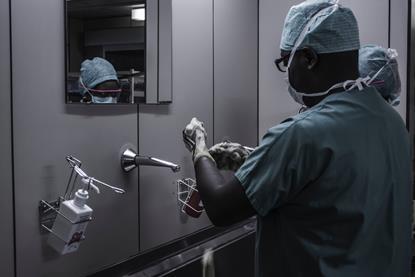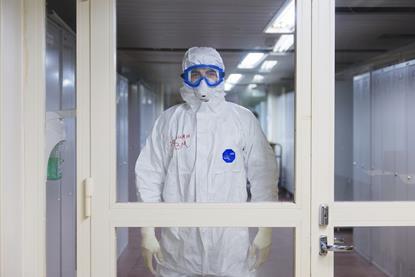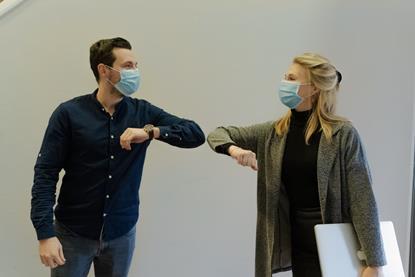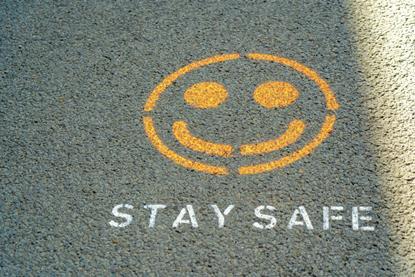Matters of Life and Death
In each episode of Matters of Life and Death, brought to you by Premier Unbelievable?, John Wyatt and his son Tim discuss issues in healthcare, ethics, technology, science, faith and more. John is a doctor, professor of ethics, and writer and speaker on many of these topics, while Tim is a religion and social affairs journalist. We talk about how Christians can better engage with a particular question of life, death or something else in between.
Matters of Life and Death
Dementia: Listening to bodies and the sacramental ministry of touch
Jess Wyatt, vicar and theologian, delves into the complexities of dementia, challenging the notion that personhood diminishes with the disease and exploring how Christian beliefs in embodiment and identity shape compassionate care. This podcast episode offers insights into nurturing those with dementia.
Cultural witness and the purpose of theology, with Graham Tomlin
Graham Tomlin has been a vicar, a theologian, a college principal, a bishop and now spearheads a project dedicated to trying to re-enchant the UK with Christian faith. In this episode we reflect with him about his ministry, the current state and status of theology in the church, the struggles of the Church of England where he served as a bishop until recently, and why he’s now focusing on helping non-churchgoers begin to see the world through ‘Christian spectacles’.
Antinatalism: Should we all stop having children?
The antinatalist movement, advocating against childbearing for reasons ranging from climate concerns to philosophical debates on consent, challenges traditional pro-natalist views within Christianity, prompting discussions on voluntary childlessness and celibacy in a contemporary context.
Is this the end? Plummeting birth rates, the future of humanity and the meaning of children
Global birth rates are declining across the globe, raising concerns about societal impacts and the sustainability of populations. This episode explores potential causes and the Christian perspective on the value of having children in light of this trend.
Spiritual, but not religious: What do people actually believe these days?
The non-religious are an ever-increasing segment of the population, in the UK, the United States and across the Western world. But what do they actually believe, and indeed not believe, in?
Arrested for praying in your head? Abortion clinic buffer zones and 21st century thoughtcrime
The UK’s new buffer zone laws around abortion clinics challenge religious freedoms, leading to arrests for silent prayer and preaching. Are we compromising fundamental liberties for security, unnoticed by the church?
What is the Trump government doing to medical research and international aid, and why should we care?
An under-reported story of the tumultuous first months of the second Donald Trump administration is how his team are brutally cutting back long-established federal institutions.
What are chatbots doing to us? Personhood in an age of AI
AI-driven chatbots are becoming a major industry, with hundreds of millions of people spending hours every day talking to non-human personas. They can be friends, therapists, lovers, work colleagues or fantastical invented characters. Or even an uncanny replica of an actual loved one who has died.
Co-operation with evil
Can a pro-life Christian anaesthetist take part in surgical abortions, even if they are simply ensuring the mother is safely put under and do not do the actual abortion? What about the nurse checking blood pressure earlier on the ward?
Cryptocurrency: Financial liberation for the masses or pyramid schemes for the gullible?
Revisiting a standout 2023 episode: Explore the cryptocurrency phenomenon with Chris Goswami. From the rise of memecoins to the ethical dilemmas of bitcoin investment, discover a Christian perspective on navigating this rapidly evolving tech landscape
Should we fear our new social media overlords in the age of Trump?
Elon Musk, the mercurial billionaire who owns Twitter, is increasingly wielding his enormous political power via his social media network, interfering in politics in America and far beyond.
Knowing our own bodies: Fertility apps and the pill, with Dawn McAvoy
In this episode we revisit our last conversation on contraception (linked below) with Dawn McAvoy from the “pro-women pro-life” movement Both Lives, and reconsider why so many women today are turning away from hormonal contraception.
Should we try to save every one? Ethical dilemmas and Christian values when treating very premature babies
A recent Guardian article looked in depth at advances in neonatology – the care of extremely premature babies – and the complex ethical challenges now faced by parents and doctors alike. Modern medicine can now save the lives of babies born at just 21 or 22 weeks old, but does this come at too great a cost?
Who do children belong to in an era of surrogacy and reproductive technology?
In this episode we consider a provocative essay by a legal philosopher who explores the troubling implications of this new reality, and ask as Christians where do we stand on the question: who do children belong to? What is lost when children come into the world not inescapably rooted in one family, but as the result of a commercial transaction?
An anxious generation: Are social media and smartphones ruining children’s mental health?
Since 2010 mental health problems among young people have exploded. At precisely the same time, smartphones and social media have become deeply embedded in the lives of children and teenagers. A growing body of evidence suggests these two things are connected. In this episode we consider the argument that a turn away from physical outdoor play towards spending endless hours scrolling and messaging via screens is hugely detrimental to the wellbeing of young people.
Giving, data and compassion: Should Christians all be ‘effective altruists’?
A movement founded at the University of Oxford in 2009 has now captured the imagination – and the wallets – of some of the brightest and most successful across elite Western academic and business circles.
Surveillance capitalism: Is privacy dead and should we care?
Every tap, swipe and click we make on our phones, tablets and laptops is being recorded by big tech firms. This is often called surveillance capitalism – a network of products and services we use every day which sucks up large quantities of data about us and then sells it on to advertisers at huge profits.
The ethics of embryology: ‘Ensoulment’, the 14-day limit and co-operation with evil
There has been a flood of highly significant if poorly reported developments in embryo research in recent years, all of which raise new and confusing questions for Christians and non-Christians alike. Is it acceptable to use stem cells to create embryo-like structures to research on?
The powers of the age: Spiritual warfare, evil and technology in the 21st century
Many evangelical Christians remain uncomfortable about engaging with the Biblical narrative, in both Old and New Testaments, around evil, Satan, spiritual forces and demonic power. And even more so in trying to identify their malign hand behind modern trends. But in this episode we reconsider what scripture says – and doesn’t say – about the nature of evil and ungodly spiritual forces, the powers and principalities of our world.
The future of gender medicine and transgender children, with Dr Julie Maxwell
This week’s episode picks up on our last conversation with paediatrician Julie Maxwell from 2023, and in particular the sweeping changes made to how gender-questioning children are treated in Britain in the last year.
The assisted suicide bill has been passed by parliament. What comes next?
In this episode we discuss what the bill proposes, the campaign that built up to the debate, how MPs discussed and voted on the bill, and what happens now.
Should Christians abandon contraception?
While most Protestant Christians have been at ease with using contraception for generations, there is a growing movement to re-examine the ethics of this, with more and more evangelicals asking if perhaps their Catholic brothers and sisters may have a point.
Earthquakes and cancer: Why is God’s good world so full of suffering? with Sharon Dirckx
Christians normally explain away human-caused suffering by pointing to God giving us free will, and our sinful natures using that to harm ourselves and each other. But what about all the things entirely out of our control which cause so much sadness, from natural disasters to genetic diseases?
Vaccine conspiracies, mistrust and catastrophism: How the church lost its way, with Dr Francis Collins
Francis Collins is one of the leading scientists of his generation, a world-renowned geneticist who led the international project to map the human genome. In this episode we talk through his experiences in public office as a Christian scientist and discuss how the US evangelical church became so polarised, divided and sceptical of good science, even when presented by faithful believers like him.
DNA, parenthood and selecting for IQ: The surprising return of eugenics
Can someone else own your DNA, and what are the risks if genomes are passed around the economy as any other product? Next, a US start-up has apparently used UK volunteers’ genomic data to pursue its plans to offer couples the chance to screen their embryos for intelligence, beauty, and maybe more, all for a chunky sum of course.
Near death experiences
Once dismissed as quackery or New Age woo, near death experiences are seeing something of a modern revival. A slew of serious scientists and doctors have begun studying the phenomenon, even constructing clinical trials to try and see what, if anything, goes on when someone is on the brink of death but is resuscitated successfully. And there is now an entire Christian industry of books and films about believers who claim to have ‘gone to heaven and come back’ after nearly dying.
Prenatal screening: Is all knowledge a good thing?
Pregnant women today are offered a battery of tests and screening for their unborn child, looking for an ever-increasing range of conditions and risks. But is the onward march of technology in this sphere always an unmitigated good thing? With abortion for a disability legal in the UK up to term, women are being given terrible choices previous generations never faced: give birth to a child who probably has a life-limiting or even fatal condition, or end the pregnancy early.
Same-sex attraction and friendship in church, with Ed Shaw
This week we speak with church pastor and author Ed Shaw about John’s book on friendship, and in particular how it intersects with those who are same-sex attracted like him.
Yoga, mindfulness and truly Christian meditation
Yoga and mindfulness are everywhere in popular Western culture: in school PE lessons, in company retreats, prescribed by doctors, and even sometimes endorsed by churches. Are these harmless or even quasi-Christian practices we can all enjoy, or pagan-derived movements which believers should steer clear of? And is there such a thing as ‘Christian meditation’ we should all be leaning into instead?
Remembrance and forgetting: Why is nobody talking about covid any more?
Harrowing testimony from healthcare staff at the UK’s national covid inquiry has reminded us of the horrendous sacrifices made by doctors and nurses during the pandemic, just a few years ago. And yet the inquiry has drawn hardly any media attention, with most of us happy to move on with our lives and never think about those long months in lockdown again. But is this a wise, or even a Christian, way of dealing with trauma in the past?
Will anti-obesity wonder drugs save our broken NHS?
The new British government has been crystal clear that in their view, the National Health Service – a state-run socialised system which is quasi-worshipped by most Britons – is in long-term crisis. Services from family doctors to cancer treatment to A&E in hospitals are struggling and failing to hit targets, and constantly underfunded.
Stigma, anti-depressants and emotional resilience: Rethinking mental health and the church
Tim is away this week so we’re sharing a classic episode from the MOLAD vault. Since the covid pandemic there has been an alarming rise in people presenting with mental health problems.
Assisted suicide: Euthanasia tourism takes off in the US amid fresh push to change law in Britain
Today we pick up a number of stories and updates in the conversation around assisted suicide. Long since legal in a growing number of states in the US, a new report has detailed how things are liberalising further. Some states now permit non-residents to cross state lines solely to die, creating a new market in euthanasia tourism for those living in less liberal parts of America.
Should robots be given human rights?
A classic episode from the MOLAD vault today: If and when autonomous and intelligent robots come into existence, should they be granted rights, or even personhood? A growing number of technologists argue governments must lay out what status conscious and rational machines would have before they actually have been invented.
Lucy Letby reconsidered: Innocence and guilt, partial evidence, and living with unknowns
We covered the case of Lucy Letby – a neonatal nurse convicted of murdering seven babies and attempting to kill seven more – last year. Since then, there has been a growing campaign claiming she is the victim of a miscarriage of justice, as Letby herself appeals the judgement.
What does it mean to be made in the image of God?
‘Let us make mankind in our image.’ But what does Imago Dei truly mean for us today? From abilities to relationships, how do we define being made in God’s image in a way that includes everyone? In an era challenging human uniqueness, understanding Imago Dei is key to upholding the value of all life. Let’s revisit this foundational concept and its importance in our modern world.
The infected blood scandal
A UK inquiry revealed NHS’s use of contaminated blood, causing infections like HIV. Particularly tragic were non-consensual experiments at a haemophilia school, resulting in deaths. This discussion probes the ethics of medical trials, healthcare improvements, and the role of Christian humility in medicine.
Autonomous killer drones and the future of warfare
This week’s focus is on two ethical issues: the rise of autonomous AI drones in Ukraine’s war, questioning the morality of machines in combat, and the ethical dilemma of surging frozen embryos from IVF in the UK, exploring solutions like embryo adoption. Both topics highlight the complex ethical implications of modern technology and medicine.
Should Christians break the law? Civil disobedience, climate protest and heavy-handed policing
A landmark court case in the UK recently saw five radical climate activists jailed for up to five years for their role in organising the blocking of a major motorway to protest against fossil fuels.
The unintended consequences of sperm donation
A recent Netflix documentary, The Man With A 1000 Kids, has shone a light on the often under-discussed topic of sperm donation. It exposes a Dutch man as a prolific and deceptive sperm donor who compulsively fathers children around the world via donated sperm.
Neo-Luddism and the ‘myth’ of progress: Should Christians be pro or anti technology?
In recent weeks we have discussed how to keep modern technology at arms-length (smartphones in the home) and our excitement at how humans may be about to untap God’s blessing in creation through technology (the solar energy revolution). Today we ask the question: can we really hold these positions simultaneously?
Energy abundance: Is the coming solar power revolution a blessing from God?
Even sober-minded experts are getting excited about solar power. Respectable estimates suggest the price of energy derived from sunlight will continue to drop spectacularly as the number of panels installed worldwide continues to explode exponentially.
Matters of Life & Death: Julian Assange, whistleblowers, and the Christian case for journalism
The controversial hacker and activist (and maybe journalist?) Julian Assange was suddenly freed for five years in a British jail last month, after he reached a surprise deal with the US authorities over classified military files he published online more than ten years ago.
Matter of Life & Death: Physics and the gospel: Richard Cheetham on how churches can embrace science once more
Despite reams of research debunking the myth and countless examples of pioneering Christian researchers, many people still believe intuitively that somehow science and religion are in constant conflict.
Matters of Life & Death: Dependence - Should Christians embrace ‘being a burden’ on others as we get old?
Tim’s been away this last week on holiday so we’re bringing you an episode from the Matters of Life and Death vault today. There is a looming ‘demographic timebomb’ – a growing mass of elderly and increasingly chronically ill people in many developed nations, expected to place huge strain on public resources.
Matters of Life & Death: Are smartphones damaging our children? with Andy Crouch
This week we interview the writer Andy Crouch on a question which has been everywhere in recent months: are smartphones damaging our children?
Matters of Life & Death: How much is too much to genetically screen your children?
In the first half of this episode we explore new research into public opinion around polygenic embryo screening. This technology allows people undergoing IVF to see what genes each potential embryo has and then choose to reimplant the one with the ‘best’ genetic make-up.
Matters of Life & Death: Elections, the church and threats to democracy
In this episode we reflect on why Christians are so politically engaged in Britain, with research suggesting they are much more likely to vote, join a party, and campaign than the general public.
Matters of Life & Death: Autism - Disability or superpower?
Diagnosis rates for autism have been steadily rising for decades now, and as the condition has become more prevalent there has been a growing debate within the community and wider society about what autism is.
Matters of Life & Death: Two is the loneliest number: Can AI friends stop us feeling alone?
Science fiction has long been fascinated by the idea of humans becoming friends with computers. And the dream of an always-on digital companion you can talk to day or night is closer than ever before, thanks to advances in AI software in recent years.
Matters of Life & Death: Assisted dying in Scotland: A bad law but also an inevitable one?
A new law has been proposed in the Scottish Parliament which would allow terminally ill people to request doctors assist them in committing suicide. Is euthanasia the next great social leap forward in the inexorable onward march of progress?
Matters of Life of Death: Abusive relationships and coercive control in church
Society has been on a long and slow journey in recent decades into a richer and more sympathetic understanding of how abuse and coercion work within relationships. We are much better at both identifying and prosecuting this kind of abuse, and at being more attuned to the needs of victims and understanding why they find it difficult to just walk away.
Matter of Life & Death: Q&A: Did ending Roe v Wade actually save unborn children’s lives, and have we got food culture wrong in church?
Our first topic in this Q&A episode is a recent study which found that in 2023, the first full calendar year after the Supreme Court overturned Roe v Wade and the constitutional right to an abortion, total abortions actually increased. Despite 21 states enacting full or partial abortion bans, more women not fewer are ending their pregnancies. How can this have happened, and what might it tell the pro-life movement about its tactics and priorities if it seeks to make abortion not simply unlawful, but unthinkable?
Matters of Life & Death: ADHD, over-diagnosis and should Christians enhance our brains with stimulants?
Attention deficit hyperactivity disorder (ADHD) is one of the faster growing mental health diagnoses of our age. More and more people, including those well into adulthood, are seeking out and being diagnosed with ADHD.
Matters of Life & Death: Tim Farron, toxic social media, and how to navigate the ‘mucky business’ of politics
This week we’re bringing you a classic episode from the MOLAD archive, when we were joined by the former leader of the Liberal Democrats Tim Farron to discuss social media and politics.
Matters of Life & Death: New obesity drugs, the morality of food, and has neuroscience killed off free will?
A new wave of anti-obesity drugs led by Wegovy (also known as Ozempic) are causing huge ripples in the medical world and popular culture. Astonishingly successful at helping people lose weight, these drugs both offer a tantalising solution to the obesity epidemic and its associated public health crisis, and have also made the pharma companies which own them staggeringly rich as demand rockets ever upwards.
Matters of Life & Death: Tech hype - Should Christians resist or lean into AI?
In this episode we talk through the anatomy of a tech hype bubble, looking at previous cases such as the internet, cryptocurrency and smartphones to figure out where AI might be on the ‘S-curve’ of tech adoption.
Matters of Life & Death: Q&A: Why have anti-abortion activists accidentally banned fertility treatment in Alabama?
Alabama’s Supreme Court has ruled that embryos in deep freeze, stored as part of IVF treatment, can be considered as legal children. This unexpected judgement has prompted many clinics to shut their doors, fearing lawsuits, as the storage and eventual destruction of surplus embryos is standard practice in IVF.
Matters of Life & Death: How can Christian doctors approach medical-assisted dying (euthanasia)?
Medical Assistance in Dying: Judicial activism, suicidal ideation, reasons to stay alive, and Hippocrates’ successful medical practice
Matters of Life & Death: Psychedelics, spirits and the philosophy of Harry Potter
Culture is increasingly interested in psychedelic drugs. Whether it’s Silicon Valley execs micro-dosing LSD to turbocharge their meetings, Americans booking ayahuasca weekends in Mexico, or rafts of studies suggesting ketamine can really help in treating depression, we’re all taking drugs much more seriously than any time since the 1960s counterculture.
Matters of Life & Death: Q&A: Should single Christians use dating apps if they strike out at church?
A listener has emailed in his dilemma off the back of our recent series of episodes: His small evangelical church teaches a traditional Christian message on relationships and marriage, yet offers single members like him no opportunities to meet like-minded women. Is it OK for him to turn to dating apps to fish in a deeper pool, or are the apps unavoidably commodifying his sisters in Christ and conforming him to secular cultural ethics on relationships?
Matters of Life & Death: New Creation: Reading the Bible backwards, the ‘opiate of the masses’, Physics 2.0, and the resurrected yet scarred body
Our four-part series on the deeper narrative of the Bible comes to an end with New Creation. Just as with the beginning of the story, this final chapter is often overlooked in many churches and the Christian narrative is compressed simply to fall and redemption.
Matters of Life & Death: Egg freezing revisited: What about the ‘surplus’ eggs, and is better contraception part of the solution?
A listener has emailed in two excellent questions in response to our recent episode looking at egg freezing. What happens to the leftover eggs which are frozen but never reimplanted, and can Christians be relaxed about this intrinsic wastefulness of the process?
Matters of Life & Death: Gender gap in church: Onward Christian Soldiers, the only man in a room full of women, Bonhoeffer’s ‘cheap grace’ and Christian dating apps
In this episode we look at what evidence there is for the idea of a gender gap in church, and then discuss what may have caused it. Are men and women fundamentally so different they worship God and are discipled in radically different ways?
Matters of Life & Death: Q&A: The contradictions which underpin anti-suicide efforts in an era of euthanasia, and are there any honest and unbiased journalists left these days?
Join us as we tackle listener questions on the ethical line crossed with euthanasia legalisation and the contradiction of suicide prevention. Can this worldview stand? We’ll also discuss finding unbiased news amidst conspiracy theories and commercial concerns.
Matter of Life & Death: Egg freezing: The ticking biological clock, prosecco and cheese evenings, the culture war over maternal age, and living with wisdom and contentment
Increasing numbers of women are choosing to freeze their eggs in the hope that years down the line they can use these younger, healthier eggs to have children once their relationship, personal, financial or work circumstances are right.
Matters of Life & Death: Genetics: Libraries of recipe books, BRCA1, Gattaca, and Big Data Towers of Babel
A final classic episode to see us through the Christmas and New Year break. Today we’re returning to an interview with NHS geneticist Melody Redman.
Matters of Life & Death: Pregnancy crisis - A constructive Christian response, heads versus hearts, paternalistic gynaecologists, and ambiguity in the ultrasound clinic
Today we’re returning to a classic episode from our back catalogue, with special guest Sophie Guthrie-Kummer from Choices, a Christian crisis pregnancy centre in London.
Matters of Life & Death: Climate anxiety — ’Delay means death’, Extinction Rebellion, throwing pebbles into God’s river, and rediscovering lament
In this episode we consider the communication and changing narratives around climate change, why an unscientific hyper-fatalism has set in with many activists, and what impact this might be having on younger generations terrified humanity itself is going extinct.
Matters of Life & Death: Q&A: Should we welcome the coming wave of anti-obesity drugs, and what’s at stake in the argument over the 14-day limit on embryo research?
Our year-end Q&A episode as we discuss hot topics: Wegovy, the controversial anti-obesity drug and the debate on extending the 14-day limit on human embryo research
Matters of Life & Death: Redemption: Always Plan A, sharing in Christ’s sufferings, a Disney fairy story, and the offensive incarnation
Creation. Fall. Redemption. New Creation. Our series on the theological foundations of Christian ethics and the grand narrative of the Bible has reached the third chapter – redemption.
Matters of Life & Death: Palliative care, Dogs and Guinness on the wards, complicated grief, DNAR discussions, and resisting assisted dying
A couple of years ago we interviewed Sarah Foot, a Christian palliative care doctor. She spoke about how she treats the physical, mental, social and even spiritual needs of those who are dying, the Christian foundations of the discipline, and what impact her profession has on her.
Matters of Life & Death: Q&A: Why are we ignoring rising death rates among poorer ethnic minority children, and will the flesh-and-blood girlfriend become a thing of the past?
New official data in England reveals an alarming and much under-reported phenomenon – significant increases in mortality among children from the most deprived communities over the last two years.
Matters of Life & Death: Science and religion 1: The myth of conflict, Charles Darwin’s beetle research, epistemic humility, English country churchyard or Californian fridge?
This week’s guest is Nick Spencer, senior fellow at the faith thinktank Theos, and recent author of Magisteria: The entangled histories of science and religion.
Matters of Life & Death: Q&A: The ‘myths’ leading women to choose abortion, and is digital slavery underpinning breakthroughs in AI?
This week we dip back into the postbag to look at some more listener questions.
Matters of Life & Death: Friendship 3: Ruth and Naomi, ‘chesed’, trips to the theatre with John Stott, and an unorthodox rabbi
We last tackled the idea of friendship when we explored the so-called ‘hermeneutic of suspicion’ – that cloud of concern that today hangs over any close relationship between two people.
Matters of Life & Death: The Fall: Bad actor theory, a malevolent voice in the Garden, Total Depravity and Original Sin, and the ‘Christian heresy’ of liberal humanism
Creation. Fall. Redemption. New Creation. This is the grand narrative of scripture and the theological foundation we use to try to probe into the ethical challenges thrown up by advances in science and technology.
Matters of Life & Death: Baby loss 2: Rising abortion numbers, pills by post, ‘the pregnancy remains’, and Schrodinger’s fetus
We spoke last week about the hugely welcome shift in how society talks about miscarriage and cares for women (and men) who have experienced it. And yet at the same time in Britain, we desperately avoid using the same language and narrative established in baby loss services when we are in the abortion zone.
Matters of Life & Death: Baby loss 1: Elsie’s story, one in five pregnancies, names missing from the family tree, and the power of ultrasound
We have just finished Baby Loss Awareness Week here in the UK. While the event is not hugely well known, it is indicative of an enormous cultural shift in recent decades around how society talks about miscarriage and stillbirth.
Matters of Life & Death: Women and Christianity: Purity culture, beyond complementarianism, baggy t-shirts over swimming costumes, and recovering Tamar’s voice
Christianity is sometimes described as ‘bad news for women’. Clearly we would all disagree with this epithet, but why does it have cultural currency right now for a growing number of particularly younger women?
Matters of Life & Death: Origins of covid: Gain of function research, zoonosis, the Wuhan Institute of Virology, and truth over tribe
When the pandemic first spread beyond China there was a straightforward message from scientific elites: the virus came from a wild animal accidentally spilling over into humans, and any suggestion it might have instead been manipulated in a lab and then escaped was a quasi-racist conspiracy theory.
Matters of Life & Death: Q&A: Should Christians use homeopathic medicine and why are climate scientists self-censoring in academic journal articles?
A listener has emailed in to ask where we stand on alternative medicine, such as homeopathy or chiropractors. Is it fine for believers to partake in these kinds of complementary treatments and therapies, alongside traditional evidence-based scientific medicine? Why are they so stubbornly popular despite mountains of research suggesting they mostly don’t work?
Matters of Life & Death: Creation: The Brethren’s suspicion of the ‘world’, an explosion of joy, Eric Liddell’s sprinting epiphany, and celebrating beauty
Today we start a new series unpacking the theological foundations of much of what we talk about on Matters of Life and Death.
Matters of Life & Death: Q&A: The science of the billions-of-years-old Earth, has God deceived us, and are philosophers so useless after all?
Our latest episode tackling questions from the listeners starts by considering whether we can harmonise a belief in modern science and a literalistic reading of the Genesis account of creation.
Matters of Life & Death: Lucy Letby: Murder on the neonatal ward, Munchausen’s by proxy, doctors versus nurses, and the banality of evil
Britain has been gripped by horror by the recent conviction of a neonatal nurse called Lucy Letby, who murdered seven premature babies and attempted to kill six others at the hospital where she worked. In this episode we discuss this horrifying and tragic story and whether Letby could or should have been stopped earlier.
Matters of Life & Death: Q&A: Chronic Fatigue Syndrome, psychosomatic illness, AI acing exams, and the limitations of true creativity
Delve into another episode of listener questions! We’re addressing feedback on Chronic Fatigue Syndrome and exploring the enigma of ‘psychosomatic’ illnesses. Plus, we’re discussing the impact of AI like ChatGPT on academic assessments.
Matters of Life & Death: Space: The James Webb Telescope, hobbits of the universe, astrobiology, and 16 billion billion Earth-like planets
This week we have another classic episode of Matters of Life and Death from the archive. We invited theologian Andrew Davison to join us to talk through the spiritual ramifications of cosmology and what light thinking about the wider universe sheds on vital doctrines such as creation and incarnation.
Matters of Life & Death: Evolution: The cosmic watchmaker, a 6,000-year-old Earth, the immorality of mutation, and intelligent uncertainty
Evolution versus creationism is the internal Christian argument which doesn’t go away. We recorded an episode last year exploring this knotty problem and how believers might go about trying to debate it respectfully even if they disagree. We look at the age of the Earth, common descent, natural selection, and the historicity of Adam, Eve and the Fall, to try and shed some light on this murky issue.
Matters of Life & Death: Abusive leadership: Mike Pilavachi and Soul Survivor, The Rise and Fall of Mars Hill, Sigmund Freud’s chaise longue, and Paul-Timothy relationships
It’s been almost two years since we recorded an episode about abusive church leadership inspired by the downfall of Mark Driscoll and the Mars Hill church. Today we re-examine that conversation in the light of the latest scandal rocking the British evangelical church – allegations against Mike Pilavachi from Soul Survivor.
Matters of Life & Death: Suffering: Mystery and presence, the lamb slain from the foundation of the world, rediscovering lament and the Gethsemane prayer
We’re bringing you a classic episode of Matters of Life and Death from the archive today, all about suffering.
Matters of Life & Death: Q&A: Karl Barth’s complicated home life, and single Christians considering adoption
In our latest episode tackling some questions from listeners, we begin by thinking about whether it should matter if influential theologians and Christian writers had personal moral failings, and whether we can separate out someone’s theological work from their own sins.
Matters of Life & Death: Covid reconsidered 2: Empty Nightingale hospitals, difficult triage decisions, a failure of Christian leadership, and reconsidering lockdown
Our second ‘lessons learned’ episode looking back at the covid pandemic tackles how our healthcare systems coped, or failed to cope, with the unprecedented crisis of coronavirus.
Matters of Life & Death: Covid reconsidered 1: Pandemic amnesia, ‘Stay at home, Protect the NHS, Save lives’, lingering Long Covid, and 13.47 billion vaccine doses
This podcast happened to launch a week or two into the first lockdown in spring 2020, and so for the first year almost all we could talk about on the show was coronavirus. But since normality finally returned last year, it feels like nobody wants to talk about the pandemic again.
Matters of Life & Death: Dementia: Listening to our bodies, 72 unique behaviours, multi-dimensional personhood, and the sacramental ministry of touch
In this episode we speak with trainee vicar and theologian Jess Wyatt about her research into embodiment, personhood and dementia, and think through different ways to care for and attend to those suffering from this increasingly prevalent disease.
Matters of Life & Death: Surrogacy: The intended parents, altruistic versus commercial, ancient Christians saving abandoned babies, and a post-genetic community
In this episode we discuss why surrogacy is gaining in popularity, the pros and cons of the proposed reforms, and whether Christians should endorse surrogacy as a good way to start families.
Matter of Life & Life: Digital church: Worship on Zoom, pandemic revival, time-shifting and Gnosticism (Replay)
We are both on holiday this week so we’re bringing you an episode we first recorded in 2021 during the covid pandemic. It explores one of the most significant and potentially long-lasting ways the covid pandemic has affected church life – the shift to digital.
Matters of Life & Death: Trans children: Gender dysphoria, diagnostic overshadowing, boy Lego versus girl Lego, and the non-replicated Dutch Protocol
Perhaps the most contentious political, medical and social issue of the day is how to treat and care for young people who are questioning or experiencing distress around their sex and gender.
Matters of Life & Death: Q&A: Christian pacifism in times of war and the Tower of Babel reconsidered
In this episode we tackle two questions from listeners.
Matters of Life & Death: Digital persecution: Deadly rumours on WhatsApp, a ‘Panopticon’ of censorship, the corrosion of trust, and China’s spreading surveillance state
The persecuted church today lives as it always has under the threat of arrest, imprisonment, physical attack, verbal threats and harassment, and even death. But today these traditional methods are supplemented by the technological revolution.
Matters of Life & Death: Q&A: Helping unmarried couples have children and court-ordered blood transfusions
Today’s episode was recorded as part of the New Zealand Christian Medical Fellowship’s annual conference. Doctors there sent over two bioethical conundrums for us to chew over as part of a special episode of Matters of Life and Death.
Matters of Life & Death: Generative AI: Second Contact, avoiding the fate of Nokia, hacking the human operating system, and the resilience of Western democracy
New artificial intelligence software has swept through the internet over the last year. Many are thrilled by the potential and power of AI which can generate brand new text, images, sound and video. But others are sounding the alarm.
Matters of Life & Death: Q&A: Introverts versus extroverts, faith in the consultation room, and a moratorium on AI research
More quickfire initial thoughts in response to questions from listeners. This week we discuss whether introverts are marginalised in the church, or actually disproportionately likely in the pulpit?
Matters of Life & Death: Contemporary spiritualities: Nominal atheism, New Age prayers for £25, moving on from Empty Tomb evangelism, and the church of social justice
The non-religious are an ever-increasing segment of the population, in the UK, the United States and across the Western world
Matters of Life & Death: Effective altruism 2: Tithing, second-hand stuffed toys in Turkey, the Parable of the Lost Sheep, and one-hundredth of a guide dog
In this second part of our effective altruism conversation, we explore the Christian sub-community within EA and ask whether the movement’s fundamental ideas are compatible with Christian tradition on giving.
Matters of Life & Death: Effective altruism 1: QALYs, longtermism, Jeremy Bentham’s embalmed corpse, and ethical elitism
Explore effective altruism, a data-driven utilitarian approach to philanthropy. Discover its rapid growth, potential deviations from original intentions, and the challenges of turning ethics into an algorithm.
Matters of Life & Death: Webinar 2: Totalitarian regimes, the tobacco regulation lag, eternal life for materialists, and ‘Don’t be afraid’
In the second part of John’s webinar with Premier Unbelievable, he takes questions from listeners on everything from whether AI tech is inching us towards the end times to how families can stave off the destructive influence of smartphone addiction.
Matters of Life & Death: Webinar 1: Redefining human-ness, testing for consciousness, hoodwinked by ChatGPT, and a black box
Part one of John’s ‘How to live faithfully in a technologically confusing world’ webinar explores the staggering sophistication of the latest generation of AI chatbots and what ethical questions these might throw up for Christians.
Matters of Life & Death: Friendship 2: Walks in the Garden of Eden, David and Jonathan, covenantal clarity, and red flags
In this episode we take a lightning-quick tour through the Bible to consider what we can learn about friendship there – with God, between God’s people, and fundamentally lived out in the life of Jesus.
Matters Of Life & Death Friendship 1: The hermeneutic of suspicion, Classical ideals, scandalising middle-class Vienna, and the ‘mysticism of materialism’
Somebody once said that in contemporary society we all want to ‘have sex with our friends, and be friends with our sexual partners’. There is a broad suspicion of intimate but non-sexual friendships, especially those which are intergenerational or cross the sexes.
Matters of Life & Death: Listener questions: Polarised culture wars, the challenge of elder care, and childlike sexbots
To mark one year since Matters of Life and Death joined the Premier Unbelievable network, we have a special one-off episode answering some questions emailed in by listeners.
Matters of Life & Death: Public sector strikes 2: Taking patients hostage, employment as service, slaves and masters, and Christian peacemaking
There are two strong Christian traditions when it comes to robust political or industrial action such as strikes.
Matters of Life & Death: Public sector strikes 1: The Winter of Discontent, austerity-era pay freezes, Christian socialist solidarity, and continuity of patient care
The UK is currently gripped by a wave of strikes from public sector employees – nurses, teachers, postal workers, train drivers, paramedics, and soon junior doctors too.
Matters of Life & Death: Surveillance capitalism 2: QR codes in China, privacy, the manipulation of desire, and a neo-Benedictine Rule of Life
In this episode we think through more of the implications of living in a non-private digital village in the 21st century, but is privacy even a Christian virtue in the first place?
Matters of Life & Death: Surveillance capitalism 1: Trillions of data points, clickbait, an advertising arms race, and BF Skinner’s pigeons
Every tap, swipe and click we make on our phones, tablets and laptops is being recorded by big tech firms. This is often called surveillance capitalism – a network of products and services we use every day which sucks up large quantities of data about us and then sells it on to advertisers at huge profits.
Matters of Life & Death: Cryptocurrency 2: Technicism, the Parable of the Talents, get-rich-quick schemes, and the wheat and the weeds
In the second part of our discussion with Chris Goswami, we dive into some of the ethical arguments for and against cryptocurrencies.
Matters of Life & Death: Cryptocurrency 1: Bitcoin, warehouses of computers solving maths puzzles, the dot.com bubble, and FOMO
Recent news headlines have been full of discussion of the current ‘crypto winter’, a season where the value of cryptocurrencies has plummeted causing financial devastation and destroying what looked like thriving crypto institutions.
Matters of Life & Death: Medical Assistance in Dying 2: Suicidal ideation, no crystal balls, conscientious objection, and Hippocrates’ successful medical practice
In our second conversation on Canada’s euthanasia regime, we chat with a Canadian doctor about the troubling expansion of Medical Assistance in Dying to those only suffering from mental illness.
Matters of Life & Death: Medical Assistance in Dying 1: Judicial activism, a ‘reasonably foreseeable’ death, the unacceptability of suffering, and reasons to stay alive
This week we speak with a Christian psychiatrist from Canada who has been involved in both the campaigning against the spread of euthanasia, and also figuring out on the ground how to care well for patients in a system which offers them the chance to take their own lives instead of receiving treatment.
Matters of Life & Death: Martin Rees 3: Pre-emptive science fiction, the morality-reality gap, adventurers on Mars, and the mind of the Creator
In the third and final installment of John’s discussion with Lord Martin Rees, the Astronomer Royal, they discuss Martin’s views on the future of space travel and astronauts, and whether some robotic future progeny of humankind will eventually replace us in exploring the universe.
Matters of Life & Death: Martin Rees 2: Blurred humanity, re-dignifying care work, algorithms reading lung X-rays and the risks of virtual life
Happy New Year! Today’s episode continues the Big Conversation between John and Martin Rees, the astronomer royal.
Matters of Life & Death: Martin Rees 1: Advances in artificial intelligence, the Eliza effect, passing the Turing Test, and the problem of other minds
Today’s episode is a little different from normal as we’re going to begin a short series sharing a recent conversation John had with Lord Martin Rees, the astronomer royal.
Matters of Life & Death: Social media and politics 2: A mucky business, the ultimate conspiracy theory, ‘showbiz for ugly people’, and and atomised individuals
In the second half of our conversation with Tim Farron, we discuss his conviction that Christians should get stuck into politics despite its compromises and challenges.
Matters of Life & Death: Social media and politics 1: The judgemental society, 3,000 offensive tweets a day, freedom from vs freedom to, and Elon Musk’s Twitter
This week we’re joined by the former leader of the Liberal Democrats Tim Farron to discuss social media and politics. Research suggests UK members of parliament like Tim get sent thousands of offensive tweets every single day.
Matters of Life & Death: Mental health 2: Emotional resilience, the bio-psycho-social model, the power of story and depression in the Psalms
In the second half of our discussion with Christian psychiatrist Daniel Maughan, we work through some ways in which the church might play in role in supporting those struggling with their mental health back to fullness of life.
Matters of Life & Death: Mental health 1: Power dynamics, the psychiatrist as brick wall, casualties of social media and over-pathologising distress
Since the covid pandemic there has been an alarming rise in people presenting with mental health problems.
Matters of Life & Death: Dependence 2: The Panopticon at home, evangelising to retirees, existential angst in the House of Lords, and rejecting self-sufficiency
In the second part of our conversation on ageing and dependence, we think about how secular society has tried to ameliorate the crisis of isolated older people with technological solutions.
Matters of Life & Death: Dependence 1: Isolated elderly people, altruistic suicide, a second childhood, and a crucified hero
We’ve discussed in previous episodes the looming ‘demographic timebomb’ – a growing mass of elderly and increasingly chronically ill people in many developed nations, expected to place huge strain on public resources.
Matters of Life & Death: Protestant Social Teaching 2: The ars moriendi, open casket funerals in Derry Girls, the end of Christendom and ethical quietism
Resuming our conversation with Rhys Laverty from the Davenant Institute, we look at John’s contribution to the Protestant Social Teaching book – a chapter exploring post-Reformation tradition around death and dying.
Matters of Life & Death: Protestant Social Teaching 1: Overlap with Catholicism, chronological snobbery, rejecting one-size-fits-all ethics, and ‘worldly’ versus ‘spiritual’ matters
Over 150 years the Catholic Church has built up a body of ethical doctrine commonly known as Catholic Social Teaching, which applies Catholic theology to wider social concerns, covering everything from labour relations to contraception.
Matters of Life & Death: AI sentience 2: I-Thou relationships, talking to stuffed animals, thanking Alexa, and Turing red flag laws
Building on last week’s discussion of AI chatbots, we consider the theology and sociology of why interacting with other human beings is so central to our personhood.
Matters of Life & Death: AI sentience 1: Blake Lemoine and LaMDA, trillions of words, mute idols, and the God who speaks
Earlier this year, a Google engineer went public with his concerns an artificial intelligence chatbot program he had been testing had become sentient.
Matters of Life & Death: The book reconsidered, the Moscow State University reading list, audiobooks, and the decline of the reading Christian
Twenty-four years ago, John published the book which gave this podcast its name: Matters of Life and Death.
Matters of Life & Death: Embryology 2: Psalm 139, reconsidering ‘ensoulment’, the language of right and wrong, and co-operation with evil
Building on last week’s whistlestop tour through the latest ground-breaking embryo research, in this episode we consider what we should do as Christians about all this.
Matters of Life & Death: Embryology 1: A stem cell ‘Mini Me’, CRISPR, Brave New World, and extending the 14-day limit
There has been a flood of highly significant if poorly reported developments in embryo research in recent years, all of which raise new and confusing questions for Christians and non-Christians alike.
Matters of Life & Death: Evolution 2: Tracking coronavirus variants, the immorality of mutation, roughly one thousand hominids, and intelligent uncertainty
Our second episode on the evolution debate considers three more bones of contention: where do different species come from? Are we all commonly descended from a single source, or does God intervene?
Matters of Life & Death: The Queen: Monarchy as service, astonishing the President of Ireland, the changing Christmas Speech, and a testimonial faith
In this special one-off episode, Tim speaks with Mark Greene from the London Institute for Contemporary Christianity about Queen Elizabeth II, her faith and decades of service.
Matters of Life & Death: Evolution 1: Finding common ground, the cosmic watchmaker, interpreting Genesis, and a 6,000-year-old Earth?
Evolution vs creationism. It’s been one of the most divisive and contentious debates within Christianity. But is there a way to tackle these questions without falling into rancour and accusation?
Matters of Life & Death: Archie Battersbee 2: Doubts over the brain scans, the end of ‘doctor knows best’, sucked into the culture wars and protective power of attorney
Archie’s case underlines the growing crisis over the lack of trust many ordinary people have in medical professionals.
Matters of Life & Death: Archie Battersbee 1: The invention of ‘brain death’, a breakdown in trust, the child’s best interests, and how to turn off life support
Twelve-year-old Archie Battersbee died on 7 August, after months of legal wrangling between doctors who believed he was brain dead and wished to end life support, and his family who resisted this.
Matters of Life & Death: Genetics 2: Whole genome sequencing, Gattaca, de-identification versus anonymity, and Big Data Towers of Babel
In this episode we pick up our conversation with clinical geneticist Melody Redman to talk about a new NHS programme in England which is piloting whole genome sequencing of newborn babies.
Matters of Life & Death: Genetics 1: Rare diseases, libraries of recipe books, BRCA1, and precision medicine
Each of us carries around in our cells about 20,000 different genes – a unique set of biological code which shapes how our bodies develop.
Matters of Life & Death: Suffering 2: Rediscovering lament, reciting psalms in bomb shelters, the Gethsemane prayer, and the realism of Christian hope
Resuming our conversation about suffering, we think through some faithful Christian responses to evil and loss.
Matters of Life & Death: Suffering 1: ’Adamah’, mystery and presence, the ever-smiling Buddha, and the lamb slain from the creation of the world
The problem of suffering has been one of the most intractable and painful theological debates for centuries.
Matters of Life & Death: Space 2: Astrobiology, 16 billion billion Earth-like planets, LUCA and the non-competitive Imago Dei
In the second half of our conversation with theologian Andrew Davison, we ask what the discovery of life elsewhere in the universe would mean for Christian faith and teaching.
Matters of Life & Death: Space 1: The James Webb telescope, extra-terrestrial life, hobbits of the universe and the doctrine of creation
In the week the first images from the new James Webb Space Telescope were beamed back to Earth, we are joined by theologian Andrew Davison to consider the spiritual value of cosmology and astrophysics.
Matters of Life & Death: Simulation 2: Zoom’s face-smoothing, chatbot therapists, Trinitarianism, and evil as counterfeit
Today we’re going back to our conversation about simulation for part two of this re-broadcast.
Matters of Life & Death: Simulation 1: Deep fakes, David Beckham speaking Mandarin, Jean Baudrillard’s four phases, and image as sacrament
For the next two weeks we’re dipping back into the Matters of Life and Death archive to bring you an episode we first broadcast last year. It’s all about simulation.
Matters of Life & Death: Prenatal screening 2: The prohibition on soothsaying, transcending genetic determinism, a client-technician relationship and Heidi Crowter’s joyful self-advocacy
Could it be that some knowledge – including whether your unborn child has a serious genetic condition – is actually not helpful, and even harmful to us?
Matters of Life & Death: Prenatal screening 1: Peering into the unknown, less than 1/150, blood tests over the internet, and disability doublethink
Pregnant women today are offered a battery of tests and screening for their unborn child, looking for an ever-increasing range of conditions and risks.
Matters of Life & Death: Old people 2: Aging congregations, transcendence at the Arsenal, understanding life backwards, and honouring prayer warriors
Demographic trends reveal clearly the next century will be one increasingly dominated by older people. If God is giving us a lot more folk in their later years, what are they for in church life?
Matters of Life & Death: Old people 1: The demographic transition, Reverend Thomas Malthus, Hasidic Jewish outliers, and the grey vote
The world’s population is rapidly becoming older and older, with many developed nations seeing unprecedented proportions of their citizens in retirement age.
Matters of Life & Death: Robot rights 2: Rejecting self-definition, the citadel of human uniqueness, rehashing ‘God of the gaps’, and evangelising at androids
In the second part of our conversation on robot rights, we explore three Christian responses to calls for robot personhood, spanning the spectrum of hostility to optimism about the development.
Matters of Life & Death: Robot rights 1: Isaac Asimov’s Three Laws, fauxbots, whimpering miniature dinosaurs, and inherent or conferred personhood
If and when autonomous and intelligent robots come into existence, should they be granted rights, or even personhood?
Matters of Life & Death: Pregnancy crisis 2: Paternalistic gynaecologists, holding truth with grace, ambiguity in the ultrasound clinic, and refusing the culture war
Abortion is a flashpoint issue in both the church and wider culture, with the very language you choose used as a cudgel for either side.
Matters of Life & Death: John Stott 2: Christians in the public square, an untried ideal, talking and living like Jesus, and the challenge of evangelical hagiography
This is part two of our re-broadcast of last year’s John Stott episode, to mark what would have been his centenary.
Matters of Life & Death: John Stott 1: Double listening, a conservative radical, redefining ‘the ministry’ and salt as preservative
This month marks 101 years since the late John Stott was born, and his centenary last year prompted a flurry of events to mark the centenary of this highly influential vicar, Bible teacher and evangelical leader.
Matters of Life & Death: Palliative care 2: Resisting assisted dying, the ‘superskill’ of listening, DNAR discussions, and euthanasia-free-zones
In Britain as in many countries there is a growing campaign to legalise assisted suicide and to make doctors prescribe on request lethal drugs to terminally ill patients.
Matters of Life & Death: Palliative care 1: Dogs and Guinness on the wards, ‘living until you die’, deathbed prayers, and complicated grief
Over the past 60 years a new field of medicine has emerged – palliative care.
Matters of Life & Death: Climate anxiety 2: Listening to the Global South, alienation from creation, throwing pebbles into God’s river, and rediscovering lament
Following on from our discussion last week on the rise of climate fatalism, we discuss what an authentically Christian response to our environmental crisis would look like.
Matters of Life & Death: Climate anxiety 1: ’Delay means death’, media apathy, Extinction Rebellion, and fatalism among the young
The latest report from the UN’s climate scientists was both incredibly downbeat about climate change and almost entirely ignored by a media fixated on Ukraine.
Matters of Life & Death: Human enhancement 2: Techno-optimism returns, the yuck factor, cultivating our bodies, and the divinisation of humanity
In this episode we pick up our conversation from last week about transhumanism and how technology might redefine what it means to be human.
Matters of Life & Death: Human enhancement 1: Calico, the dragon tyrant, transhumanism, and monkeys playing Pong
Billions of dollars are currently being spent by a suite of private firms, mostly in Silicon Valley, pursuing radical research to enhance human capacities.
Matters of Life & Death: Relaunch: How we started, baby boomers and millennials, the pandemic as catalyst, and the signal to noise ratio
To mark our arrival on the Premier network, we recap how Matters of Life and Death began and what we hope our intergenerational conversations might achieve.
Matters of Life & Death: Coronavirus: The Omicron variant, mandatory vaccination, pandemic solidarity, and memories of authoritarianism
The Omicron variant has in a few short weeks almost taken over the pandemic.
Matters of Life & Death: Reproductive technologies: the ’Google baby’, Oliver O’Donovan, 14-day-old embryos, and techno-optimism
This week we are resuming our conversation about infertility which begun in our previous episode.
Matters of Life & Death: Infertility and IVF: Hidden wounds, premature quintuplets, embryo donation and the procreative-unitive bond
Today we are delving into a complex and sensitive topic – infertility and IVF.
Matters of Life & Death: Assisted dying: The Meacher Bill, radicals in the Lords, Canada’s slippery slope and fragile conscience protections
This week we’re digging into assisted dying. A bill to legalise it in England has been introduced to parliament – what does it propose and how likely is it to actually become law?
Matters of Life & Death: Abusive leadership
Mark Driscoll, the hermeneutic of suspicion, Sigmund Freud’s chaise longue, and Paul-Timothy relationships
Matters of Life & Death: The Robot Will See You Now
This episode was inspired by John’s new book – The Robot Will See You Now
Matters of Life & Death: Coronavirus: Miscounting deaths, the Sun’s front page, key workers with long covid and vaccine generosity
It’s been almost six months since we last dedicated an episode to covid, and since then a lot has happened.
Matters of Life & Death: John Stott: Double listening, salt as preservative, incarnational mission, and the challenge of evangelical hagiography
Last week marked 100 years since the late John Stott was born and there has been a flurry of events to mark the centenary of this highly influential vicar, Bible teacher and evangelical leader.
Matters of Life & Death: Simulation: Deep fakes, image as sacrament, David Beckham in Mandarin and therapy chatbots
Today’s topic is simulation. We live in an era when digital technology is making it increasingly easy and cheap to create fake but compelling images or videos of people, or even entirely artificial human-like personalities.
Matters of Life & Death: Digital church: Worship on Zoom, pandemic revival, time-shifting and Gnosticism
This episode explores one of the most significant and potentially long-lasting ways the covid pandemic has affected church life – the shift to digital.
Matters of Life & Death: Social media and free speech: Fake news, Facebook’s ’Supreme Court’, the Capitol riot and YouTube algorithms
In today’s episode we’re taking a sideways step from the covid pandemic and instead are discussing social media and free speech.
Matters of Life & Death: Coronavirus: Misinformation
Microchips. Bill Gates. The mark of the beast. 5G cell towers. False positive rates. Big pharma. DNA alteration. It’s been hard to avoid the swirling morass of misinformation and conspiracy theories around the pandemic.
Matters of Life & Death: Coronavirus: Vaccines - part 3
Can Christians be given the vaccine without compromising on their religious convictions?
Matters of Life & Death: Coronavirus: The second lockdown
Is this crude, blunt instrument really the best way to tackle the second wave of the covid pandemic?
Matters of Life & Death: Coronavirus: Vaccines - part 2
We received a fascinating question from a listener after our last episode on vaccines, picking up on the competing and perhaps contradictory philosophies behind the anti-vax movement.
Matters of Life & Death: Coronavirus: Vaccines - part 1
There are about 40 different potential covid vaccines already being tested on humans, with almost a hundred more at earlier stages of development in the lab.
Matters of Life & Death: Coronavirus: Mental health, anxiety and hope
We’re back after a slightly longer than expected summer break with a new episode, all about our fears, anxieties and hopes amid the pandemic.
Matters of Life & Death: Coronavirus: Technology - part 2
In the second part of our conversation on technology during the coronavirus pandemic, we look into our crystal balls and try to imagine what the world of tech will look like in the future, thanks to Covid-19.
Matters of Life & Death: Coronavirus: Technology - part 1
One of the perhaps unexpected results of the coronavirus pandemic is how it has thrown up some fascinating debates about technology.
Matters of Life & Death: Coronavirus: Death and spirituality during a pandemic
Rarely it is deemed polite to mention the uncomfortable fact that one day we all will die, let alone try to bring faith or spirituality into that conversation. But in the midst of a pandemic, is that changing?
Matters of Life & Death: Coronavirus: Life in the NHS
In this episode we examine what life in the NHS has been like during the Covid-19 crisis.
Matters of Life & Death: Coronavirus: The ethics of triage
First come, first served? Or key workers and politicians before everyone else? How can doctors decide who to treat in a healthcare emergency when there are not enough beds or ventilators to go around?
Matters of Life & Death: Coronavirus: Thinking as a Christian during Covid-19
Our third episode on coronavirus zooms in to focus on how Christians should be thinking and acting during the pandemic.
Coronavirus: How this pandemic is unlike anything before
In this second episode in our series on coronavirus, we explore how Covid-19 is different to plagues in the past.
Matters of Life & Death: Coronavirus: Christians in times of plague
Our first ever episode of Matters of Life and Death kicks off a short series on coronavirus.







